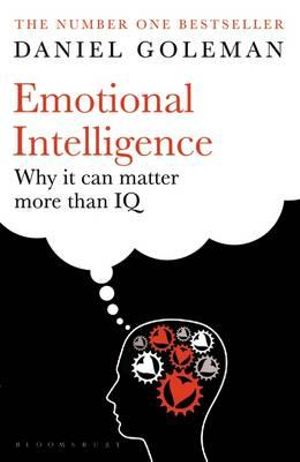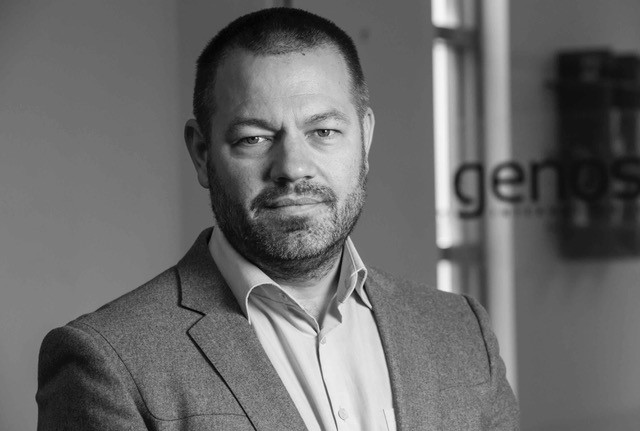By Nicola Heath
Prime Minister Scott Morrison got it right when he told the parliament in March last year that, “[f]or many, young and old, 2020 will be the toughest year of our lives.”
Bushfires, floods and, of course, a pandemic derailed the economy and created unforeseen challenges for the nation and its leaders, including the prime minister.
The crucial skill of emotional intelligence became even more critical for leaders and managers trying to adapt to the sudden changes wrought by the pandemic and social distancing.
When employees are dealing with health concerns, job insecurity, social isolation and stressful working conditions – particularly for the parents who had to juggle homeschooling with a full workload during COVID-19 lockdowns – traits such as empathy and compassion are of prime importance, says Ushma Dhanak, CEO at EQ Academy.
“People are dealing with emotions they didn’t even know they had,” she says. “Healthcare professionals are seeing more and more people with anxiety, depression, stress, and overwhelm.”
But emotional intelligence isn’t just about giving each other a virtual hug. As Daniel Goleman, author of 1995 book Emotional Intelligence, outlines in the Harvard Business Review, one of the most common mistakes made about emotional intelligence is that it equates to being “nice”.

Goleman writes that emotional intelligence, “the ability to manage ourselves and our relationships effectively”, comprises four components: self-awareness, self-management, social awareness, and relationship management – none of which, he emphasises, aligns to ‘niceness’.
Emotional intelligence is a vital skill for leaders who face another year of difficult decisions and tough conversations in 2021. Goleman illustrates how emotional intelligence can equip a manager to navigate these potentially challenging confrontations “more strategically and productively”. Emotional intelligence provides a middle path between aggression and avoidance, he writes.
“Strong self-awareness and self-management would let you control your initial impulses or any anxiety you might have around the conversation. A highly developed sense of empathy — that’s part of social awareness — would allow you to see the situation from the other person’s point of view, so you could present your argument to them in a way that makes them feel heard, or that speaks to their own interests. And handling conflict is an important part of relationship management. You’d say what you have to say, clearly and strongly, and in a way the other person can hear.”
There is a compelling business case for developing emotional intelligence within an organisation. A study by TalentSmart revealed that emotional intelligence, rated against 33 other essential workplace skills, “is the strongest predictor of performance.”
TalentSmart research also showed that “90 per cent of top performers are also high in emotional intelligence. On the flip side, just 20 per cent of bottom performers are high in emotional intelligence. You can be a top performer without emotional intelligence, but the chances are slim,” writes TalentSmart founder Travis Bradbury in an article for the World Economic Forum.

A lack of emotional intelligence in an organisation sometimes manifests in poor decision-making that can lead to unethical behaviour, such as the scandals exposed in recent royal commissions into the financial services and aged care industries. “In most of those cases, the emotions associated with greed are getting in the way of good corporate citizenship and good corporate decision-making,” says Ben Palmer, one of the creators of leading emotional intelligence tool Genos EI.
The good news, says Palmer, is that “like any skill, people can learn to be more emotionally intelligent.”
Tools for benchmarking
The first step is to gauge your own emotional intelligence – a notoriously tricky undertaking. Palmer offers an explanation why: “Emotional intelligence as a concept is something that suffers from a well-known psychological phenomenon called the Dunning–Kruger effect,” the cognitive bias hypothesis that people frequently overestimate their ability at a task.
“If you took one hundred people randomly off the street and asked them, ‘how emotionally intelligent do you think you are?’, 80 per cent of those people would say ‘a bit better than average’”, he says. “The science of EI has shown us that is not true. Like our IQ, emotional intelligence and how well we demonstrate it is fairly normally distributed in the population; that is, there’s a group of us who don’t do very well at it, there’s a group of us that’s average, and there’s a group of us who do really well at it.”
Feedback is invaluable in establishing which group you belong to, says Dhanak. Be prepared to show vulnerability and disclose “that you as a leader have also struggled to deal with the changes of the pandemic, whether that’s working remotely or managing competing priorities or dealing with the unknown,” she says. Ask your team for the view about whether “you have come across as someone who has stepped into their own personal power” or as someone who is “uncertain and not really sure how to manage the situation. It’s crucial that we get that feedback in real-time.”
Organisations can choose from a range of tools and tests to measure EI. These include the Mayer-Salovey-Caruso Emotional Intelligence Test (MSCEIT); EQ-i 2.0; and the Emotional and Social Competence Inventory (ESCI), co-designed by Daniel Goleman.
Emotional intelligence in 2021
“Emotional intelligence is vital if leaders are to effectively navigate their organisations through the turbulent change that we’re experiencing. And I’m not talking about the pandemic but rather, ‘wicked’ problems like climate change, inequality or continued restructuring of the economy. That has seismic implications for leaders and their leadership style.
Leaders, traditionally, were brilliant at solving linear-style problems. But, as the nature of our problems and opportunities have changed, the old ways of leading – and controlling – are viewed by stakeholders as failing us. Trust in our institutions is in decline; outrage grows.
No one leader will now have the expertise or time necessary to navigate their organisations through such issues, alone. Instead, there is a better chance of organisations finding innovative solutions required through facilitating collaborative efforts or empowering stakeholders. Through shared leadership.
As the pandemic has shown, heroic or command and control leaders are a hindrance when facing the complex. Humility, compassion, empathy and listening deeply are strengths now required to thrive rather than survive.”
– David Ross FIML
VUCA Strategist, Phoenix Strategic Management
Another, Genos EI, is an Australian-designed tool that evaluates EI as a set of skills and demonstrable behaviours. “It’s not a measure of emotional intelligence ability so much as a measure of emotionally intelligent behaviour and the skill with which you demonstrate your emotional intelligence in comparison to others,” says Palmer, who first co-developed the tool with Con Stough at Swinburne University in 2001.
The Genos EI test asks participants – the subject of the assessment as well as their ‘raters’ – to score the subject from one to five (where one equals ‘almost never’ and five equals ‘almost always’) on a series of 70 emotionally intelligent behaviours such as whether you acknowledge the way people feel or you manage your emotions effectively according to how they demonstrate them.
Results are delivered in the Genos EI Development Report, which presents items as ‘strengths’ and ‘opportunities for development’ that tie-in to both business performance and individual performance. The final report also includes suggestions for EI development that are tailored to the participant’s specific assessment results.
How to develop emotional intelligence
Armed with assessment results from a tool like Genos EI, an individual can develop their emotional intelligence according to their strengths and weaknesses across emotional intelligence’s four competencies: self-awareness, awareness of others, how well you manage your emotions and whether you can positively influence the way others feel.
“The first thing you can do to develop someone’s emotional self-awareness is to help them understand where their own emotions come from. Many different things trigger people in different ways,” says Palmer. It’s about “helping people stop, reflect, be more mindful of the way they feel and to understand the link between their own feelings and how those feelings drive particular behavioural reactions and impacts on others.”
Awareness of others requires us to become adept at reading emotion. “Emotions are mostly non-verbal,” says Palmer, “so not only listen to what’s being said but to listen for tone and watch for facial expressions and body language. Use that as a way of thinking about the larger context in a discussion about how someone is feeling.”
To improve emotional self-management, Palmer suggests improving physical health – making sure you eat well and exercise regularly – and setting boundaries around unhealthy habits. “If you look at your phone right up until bed, we know that disrupts sleep, and when you get a poor night’s sleep, you usually manage your emotions poorly the next day.”
How’s your emotional intelligence?
Gain insights on how well your behaviour displays your emotional intelligence at work. Find out now through Genos Emotional Intelligence.



